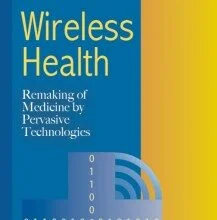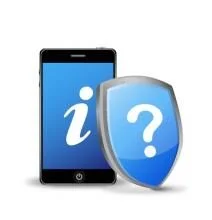On February 18th we gathered a panel from across three continents to discuss e-patient and physician relations in our latest Doctors 2.0 & You Google hangout.
On February 18th we gathered a panel from across three continents to discuss e-patient and physician relations in our latest Doctors 2.0 & You Google hangout.
 Moderated by ePatient and health blogger, Marie Ennis-O’Connor, the panel which included Denise Silber (founder of Doctors 2.0), Jamie Tripp Utitus (MS survivor and health blogger) and Renza Sciblia (diabetes consumer and health blogger) discussed the ways in which new technologies are contributing to the patient/physician relationship. The following is a summary of the discussion, which can be viewed in its entirety via the video below.
Moderated by ePatient and health blogger, Marie Ennis-O’Connor, the panel which included Denise Silber (founder of Doctors 2.0), Jamie Tripp Utitus (MS survivor and health blogger) and Renza Sciblia (diabetes consumer and health blogger) discussed the ways in which new technologies are contributing to the patient/physician relationship. The following is a summary of the discussion, which can be viewed in its entirety via the video below.
Relationships in medicine are as important now as they were in the past. The difference is that today’s technology allows physicians and patients to communicate on a different level. The panel listed some of the new technologies that are changing the dynamic between the patient and the physician, and how the balance of power has shifted. This led to a discussion on how some doctors view the empowered, digitally savvy patient as a challenge to their authority and expertise. Jamie suggests leading physicians gently towards a discussion on health technology, while Renza sees this as an opportunity to broaden the relationship between doctor and patient, fostering more openness and honesty in the relationship. She suggests that patients interview their doctors in advance to find the level of collaboration they are happy with.
Speaking to the numbers of doctors who embrace new technologies, Denise suggests that this is a multi-factorial problem, encompassing people skills and financial remuneration. Michael Weiss, listening online to the discussion, asked the panel for their thoughts on the future of medicine being the convergence of ehealth, mobile health and social media. The panel are all in agreement that this is the future of medicine, and spent some time on the important role that social media has to play in supporting and educating patients. Blogs and Twitter chats are great vehicles for healthcare professionals to learn about the lived experience of a condition.
The discussion ended with each panellist offering one piece of advice to physicians to help them prepare for a future where patients are empowered by new technologies. Renza’s advice is to just step in there and offers the reassurance that the majority of patient sites online are very well moderated and provide accurate information. This is not about replacing the doctor/patient relationship, but augmenting it. Jamie refers to Dr. Charles Safran’s quote that patients are the most underutilized resource in healthcare, followed by Denise quoting that the patient is the first member of the medical team. The discussion ends with Jamie’s call to patients to join the healthcare conversations online – to find answers and support and Renza emphasizing the peer-to-peer support and power of community that can be accessed online.
A summary by Marie Ennis:






